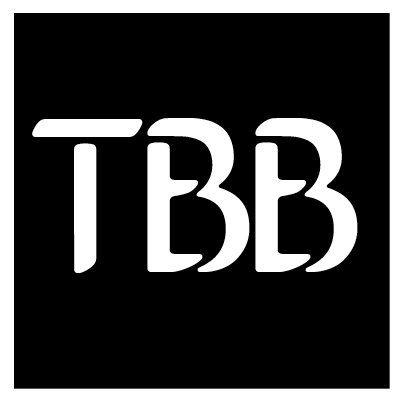The Process For Buying A Business
Maryn Williams • Aug 12, 2019
The process for buying a business can be a daunting task for any investor; however, with the help of the right adviser, you can make the best decision for you. Before investing in a new business, it is best to understand the process of purchasing a business in detail, so that you know what to expect. As with any major purchase, it is best to have an expert to guide you, and it is crucial to pay attention to any legal and financial obligations that you would accept as a result of your purchase.
Even though every business purchase is unique, there are some standard steps in the process of buying a business. An experienced business broker can explain the actions and ensure the process goes smoothly. Your Broker will be available to you as the process evolves and be an advocate in helping you to make the right decision.
First Steps In The Process Of Buying A Business
Once you have set up a meeting with an experienced business broker (be sure to read their BIO), be prepared to educate them. Things they will ask include:
- How much money do you have to put down on a business?
- Bring your financial statement or complete one of their forms.
- What are your geographic boundaries for the location of the company?
- What skills or strengths do you have? Where will you need help?
- What industries are attractive to you? What do you want to stay away from?
- Will you have a partner in the business? Will other family members work in the business, now or in the future? What are their skills?
- What is your timeframe?
- Why do you want to buy a business?
- Are you interested in franchises or private companies?
When you meet with your Broker, he/she will have you complete a nondisclosure form and a personal financial statement. These must be completed prior to their sharing any confidential information on a listing. Take a look at your Broker’s website for listings they have for sale. You can also look at a variety of other multiple listing websites to perform searches for businesses that match your interests.
These external ads provide “high level” information on the business and are intended to be teasers to attract your interest.
Once you find a listing that appeals to you, the Broker can provide you with a Confidential Information Memorandum about the listing. In this profile, you will learn more about the financials, staff, product or services, equipment, inventory, the competition, the opportunities to grow the business, and other pertinent summary information.
Usually, you can do some additional research on the business by looking over their website or doing some other internet searching on the industry. In some cases, it may be suitable to mystery shop the business. Take some time to shop like a regular customer would and get a feel for how the current owners run the business, and if you can see yourself involved in the business process. Do not talk with the staff or owners or take photos or anything! If this goes well, you can go one step further and ask your Broker to request a meeting with the Seller and a private tour to ask any relevant questions you might have.
Making An Offer And Due Diligence
The process for buying a business starts to become more focused once you have chosen a company. You must decide how much you are comfortable offering for this specific business and, with the help of your Broker, you will draft a proper offer. The initial offer, called a Letter of Intent, is non-binding, similar to an offer to buy a house. Your Broker will help you in negotiating the terms and conditions and can offer advice on any counteroffer. Every situation is going to be unique, and there are many ways to put a deal together depending on the Buyer’s and Seller’s goals and plans.
Once your offer is accepted, the business is considered to be under contract. Generally, it can take anywhere from 45 to 90 days to close the deal. Due diligence, the process of collecting all of the relevant information about the business, gathering the financials, tax returns, doing the math, applying for your bank loan, negotiating lease terms with the landlord, getting your business license, and making sure that everything is as it appears with both the firm and the Seller begins in earnest. It is wise to use a due diligence checklist to make sure you complete everything necessary during this stage of the purchase. Your Broker can suggest the names of bankers, CPAs, and attorneys they will engage in supporting your process. The Broker will help coordinate all communications with these partners and with the Sellers to keep everything on track.
Welcome To Your New Business
When you have finished the due diligence and are satisfied that everything is in order, you will sign off that you are happy with all due diligence and ready to engage the closing attorney. The Broker will engage the attorney who serves as a third party, preparing all closing documents. You will have your attorney review all closing documents but can ask the third-party attorney any questions you have as well. Then, it is time to sign on the dotted line! As soon as you and the Seller sign the contract and shake hands, you will be on your way to being the owner of your own business. Usually, during the due diligence time period, you have learned a great deal about the company. In any case, there is always a training and transition period after the closing when the current owners will continue to work with you helping you get to know the staff, switching over any vendor contracts, getting the first couple of payroll cycles down and introducing you to any critical clients. The fun begins!
Share
Tweet
Share
Mail
TN Business Brokers offer the following services:
- Business Financial, Objective and Subjective Analysis
- Estimation of Most Probable Selling Price Range
- Determination of Sellers Discretionary Earnings
- Organizational Reviews
- Marketing & Advertising of Listings
- Channel Sales
- Exit Planning
- Preparation for Business sale or transfer
- Mergers
- Acquisitions
- Sales to Internal Staff or Partners
- Commercial Real Estate Brokerage (through other R/E Brokerage Firms)
Our Service Area Includes: Tennessee, Kentucky, Alabama, Mississippi and Missouri.
Get in Touch
Tennessee Business BrokersPartners Real Estate/Westgate Enterprises 3401 Mallory LaneSuite 100, Office 129,Franklin, TN 37067
615-519-5156
karen@TennBusinessBrokers.com
RESOURCES
Stay Connected! Subscribe to get our newsletter!
All rights reserved. © 2022 Tennessee Business Brokers •
Privacy Policy
•
Terms and Conditions
• Design & Development by
VIEWS.


